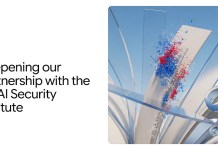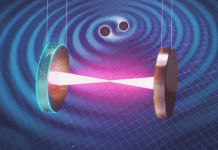This is a strange moment in the history of creativity. It wasn't that long ago that the thought of a machine writing an entire marketing campaign sounded like something out of a Philip K. Dick novel.
And yet here we are – AI-powered copywriting tools encourage, persuade and personalize faster than any human.
And according to a recent article on Mediocrewe are witnessing a quiet revolution in the way words are created, sold and shared.
The thing is, it's not just about the tools, but how they are used. Companies that once fought over slogans now compete over training data.
Marketing teams turned brainstorming into rapid engineering, using models like OpenAI's GPT-5 and Anthropic's Claude 3 to create thousands of ad copy variations in seconds.
Over at Fortuneindustry leaders are already calling AI-powered content the “new voice of personalization.”
However, the rise of these platforms—Jasper, Writesonic, Copy.ai, among others—raises some unclear questions.
When your brand's tone comes from a model trained on billions of internet posts, whose voice is it really?
I spoke with a creative director who confessed that she still rewrites every tagline that AI comes up with because, in her opinion, “the soul gets lost somewhere between the data set and the deadline.”
And she's not alone. As Marketing Brew recently highlighted, more and more agencies are hiring “AI editors” to humanize machine-written content — an irony that seems almost poetic.
Still, practical magic cannot be ignored. A single AI copywriter can now handle campaigns that once required a five-person team.
Tools like Jasper integrate real-time SEO feedback, and HubSpot reports measurable increases in engagement with AI-powered content.
Some marketers even claim that their click-through rates increased by 25% after using AI-generated headlines – although no one is quite sure. Why they work. Maybe it's the rhythm. Maybe it's randomness.
Of course, there is also a darker undercurrent. As TechCrunch noted last week, the line between “intelligent automation” and “synthetic manipulation” is becoming blurry.
When algorithms learn to imitate empathy, we need to ask ourselves: are we being persuaded or are we being programmed?
Yet for all its flaws, AI copywriting seems inevitable. It's cheaper, faster, infinitely scalable – and sometimes surprisingly poetic.
However, I can't shake the feeling that the best campaigns to come will be in the early days cooperationnot an exchange.
Machines can draft, edit and optimize; people can feel, notice and doubt. And that tension – the chaotic, imperfect interweaving between human instinct and machine precision – may be the secret ingredient that sustains creativity.


















